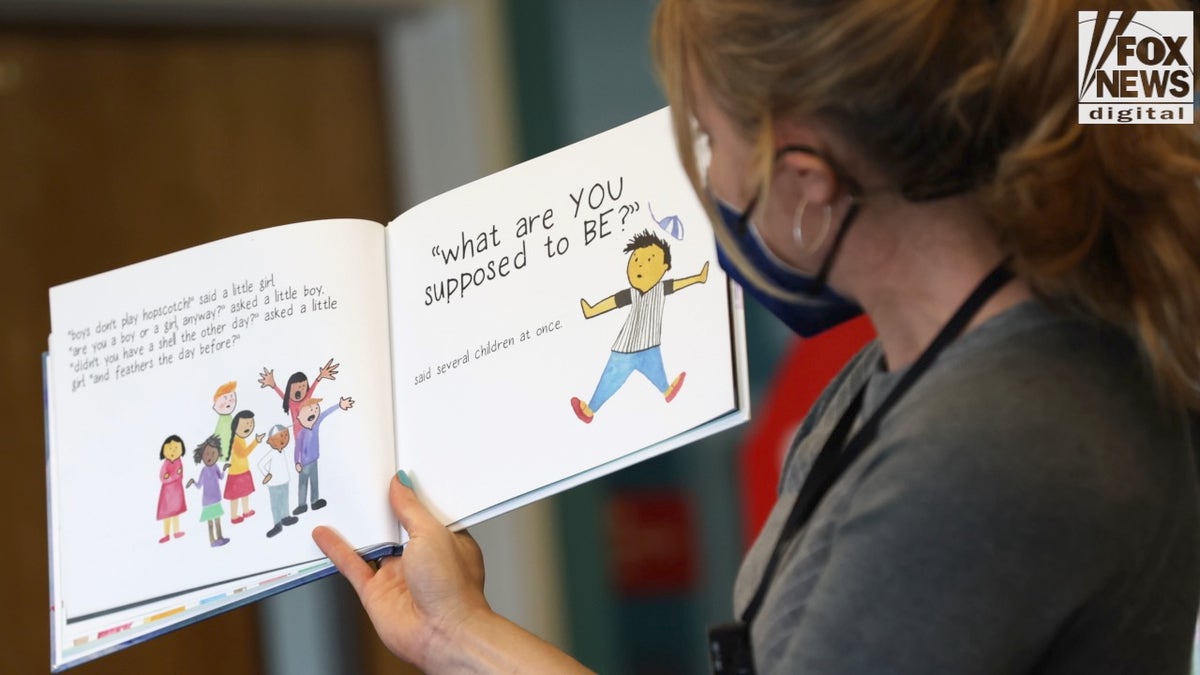NYC professor: Parents should be involved with schools on child’s gender identity
Queens College of CUNY associate professor Jay Shuttleworth argues parents should be involved as much as possible, unless a child indicates to a teacher they want to keep a discussion private.
Lawyers from around the country are wading into the debate about parental consent in conversations between children and teachers on gender identity, offering a variety of legal opinions on the contentious topic.
Speaking with Fox News Digital, several career attorneys indicated that the numerous cases around the rights of teachers, students and educators are still being fought out in court and often tackle diverging rights at the federal and state level.
"It's really at the crossroads between two paramount and competing issues. The first being a child's undeniable right to privacy and the other being a parent's right to information that concerns their child," Matthew Ulmann, an attorney who previously worked at the Department of Education, said.
He added that it was important for parents to look online and find guidelines passed on a local level that clarify issues on curriculum and parental consent, as those guidelines will have the most significant impact on the rights of students and parents. Many of these cases are new and there is no general legal consensus.

RICHMOND, CALIFORNIA - MAY 17: An elementary school teacher is seen reading a book about gender to students. (Getty Images)
Ulmann, who's with a New York-based law firm and previously worked as an educator, said he was "fairly confident" that a court system is unlikely to prioritize parents' rights in a public setting. Courts are more likely to side with educators on what topics are appropriate for the classroom.
Speaking on the idea of consent, Ulmann said schools are expected to do what is in the child's best interest and involve parents regarding mental health issues. Still, the same standard for consent typically does not apply to gender expression and identity.
"It seems to me that the right to privacy is going to take precedence over a parent's right to know," he added.
But other legal experts appeared to disagree, such as career attorney Wendy Patrick, who said students should be "worried about time on the playground, not pronouns."
"When teachers are having confidential conversations with young children about gender identity and sexuality, it's no surprise those conversations are going to move from the classroom to courtroom," she said.
She noted that parents bringing these lawsuits generally allege violations of the U.S. Constitution's 14th Amendment, which broadly gives parents the right to direct their child's upbringing, health and welfare.
Some lawsuits seek damages for emotional distress and sometimes monetary damages for counseling expenses. Others seek to stop the practice of encouraging students to question their gender identity. Lawyers have argued that it is unlikely that keeping secrets from parents is in the child's best interest.
Patrick added that upcoming results of current litigation would frame the way courts view parental rights versus educational "encouragement" of expression. Until they are resolved and set precedents, many questions remain in the air.
Kate Anderson, a mother who works as Senior Counsel with the Christian legal advocacy group Alliance Defending Freedom (ADF), said parents, not teachers, have a natural right to make educational and medical decisions for their children.
The ADF, in conjunction with the Wisconsin Institute of Law, is currently representing two sets of parents filing a lawsuit against the Kettle Moraine School district to challenge a policy that allows students to change their name and gender pronouns without parental consent. Anderson added that this violated the parents' constitutional rights because their directives to teachers on how to engage with their child were ignored.
She also noted the fundamental legal problem is that educators are taking action, sometimes medical steps, to socially transition children as young as kindergarten and actively hiding that information from parents.
"You're seeing an issue that is uniting parents and the public in a way you haven't seen in a while because it's just such a universal concern—that regardless of the outcome parents should be able to be involved in these decisions."
According to David Reischer, an attorney and CEO of LegalAdvice.com, circuit courts have offered split decisions on whether the rights of parents to direct their child's education "end at the schoolhouse door."
PARENTS' RIGHTS GROUP SUES IOWA SCHOOL DISTRICT OVER GENDER TRANSITION POLICIES

Parents and community members attend a Loudoun County School Board meeting on June 22, 2021. (REUTERS/Evelyn Hockstein)
Many courts, such as the Ninth Circuit decision in the 2005 case Fields v. Palmdale School District, have concluded that under the Substantive Due Process Clause and right to privacy, parents did not have the constitutional right to limit what information public schools make available to students.
The case saw parents argue that an elementary school violated their rights by giving students a questionnaire that included sexual topics without parental knowledge or consent.
However, other cases like Meyer v. Nebraska and Pierce v. Society of Sisters ruled in favor of parents, which Reischer said is consistent with U.S. common law.
No cases on parental consent or controversial educational subjects have been heard by the U.S. Supreme Court.
Nicholas Creel, an assistant professor of business law and ethics at Georgia College & State University, said it was important to point out that education is still primarily a state and local issue, and legality varies. The federal government, as is the case with the Biden administration, does make recommendations for states to provide "affirming care" in education but has no actual ability to mandate it.

Students raise their hands to answer questions in school. ((Credit: iStock))
"To that end, most states do not make it illegal for schools to get involved when it comes to a minor student's use of gender-affirming pronouns or mental health issues, etc.," Creel said.
While recent years have seen more states, such as Florida, Texas, and Alabama, enact new laws on the topic, most states, according to Creel, have laws on the books giving schools "explicit authority" to educate students as they see fit.
Queens College of CUNY Assistant Professor Jay Shuttleworth told Fox News Digital it is crucial to maximize parental involvement while respecting a student's legal and ethical rights to privacy. He also noted that state constitutions and education codes afford a degree of confidentiality to minors' school records.
"At the same time, parents are often the most important factor in a child's education, and they should know what their kids are up to at school," he said. "I don't know what an appropriate balance is between these two parties but embracing this difficult topic through conversations at the community and school level is a good start."
Additionally, Shuttleworth pushed back on the idea of legislating in a way that forces teachers to report on students' private lives, predicting it will cause a "host of new and dangerous problems."












































